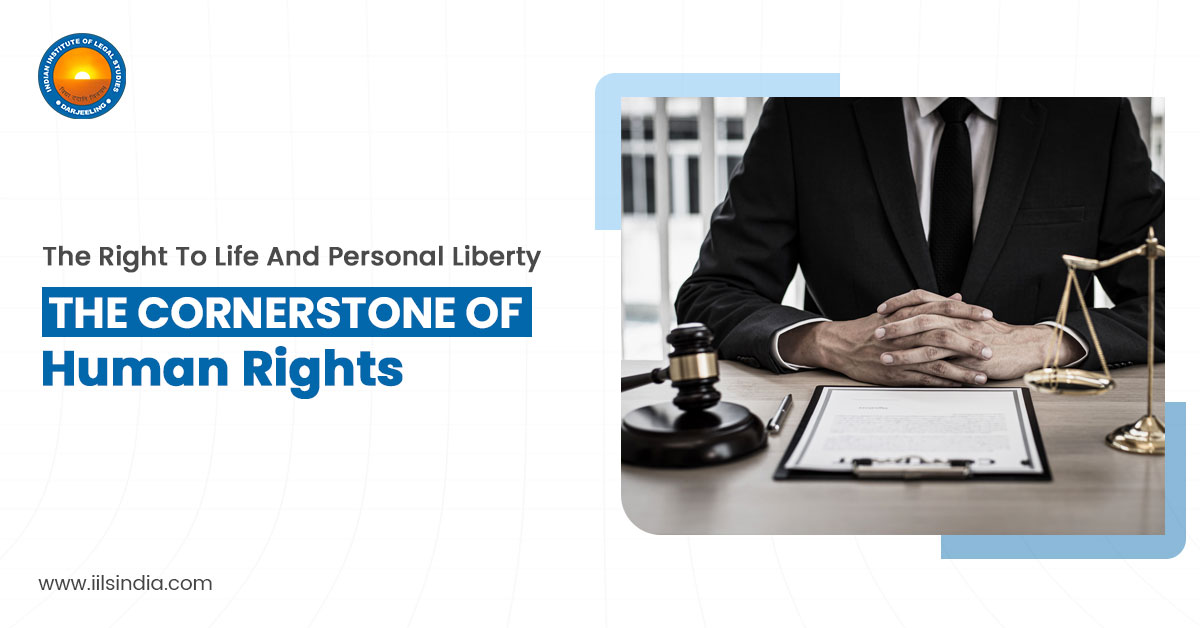The Right to Life and Personal Liberty is enshrined as a fundamental human right in many legal systems around the world. In India, this right is protected under Article 21 of the Constitution. It is a vital and expansive right that forms the bedrock of all other rights, ensuring the dignity, freedom, and well-being of every individual. Many best colleges for law organize awareness camps on the importance of upholding human rights which cater to the needs of various sections of society.
Understanding Article 21: The Constitutional Mandate
Article 21 of the Indian Constitution states: “ No person shall be deprived of his life or personal liberty except according to procedure established by law.’’
At first glance, this may appear to be a simple legal protection against arbitrary actions by the state. However, over the years, the Supreme Court of India has interpreted this article to include a wide range of rights that ensure a life of dignity, freedom, and personal security.
The Expansive Scope of the Right to Life
1. The Right to Live with Dignity: The right to life is not just about mere survival. The Supreme Court has expanded the scope of Article 21 to include the right to live with human dignity. This means that every individual has the right to a life free from exploitation, inhumane treatment, and conditions that undermine basic human dignity. This interpretation has led to the recognition of several rights under Article 21, such as the right to shelter, the right to livelihood, and the right to a clean environment.
2. The Right to Privacy: In a landmark judgment in 2017, the Supreme Court of India recognized the right to privacy as an intrinsic part of the right to life and personal liberty under Article 21. This judgment has had far-reaching implications for laws and policies related to data protection, surveillance, and personal autonomy. The right to privacy empowers individuals to make decisions about their personal lives without undue interference from the state or other entities.
3. The Right to Health: The right to life includes the right to health, as a life without access to healthcare would undermine the basic essence of the right itself. The Supreme Court has held that the state has a duty to provide adequate healthcare facilities and ensure that no person is deprived of life-saving treatments due to poverty or other barriers. This includes access to clean drinking water, sanitation, and basic nutrition.
4. The Right to Education: While the right to education is specifically protected under Article 21A, the Supreme Court has linked it to the right to life, emphasizing that education is essential for the full development of an individual’s personality and for leading a life of dignity.
5. The Right Against Arbitrary Detention: Personal liberty is a critical aspect of Article 21. This right protects individuals from unlawful arrest, detention, and any form of coercive action that is not supported by fair legal procedures. The Supreme Court has consistently struck down laws and practices that allow for arbitrary detention, ensuring that no person is deprived of their liberty without due process.
Judicial Activism and the Evolution of Article 21
The Indian judiciary has played a pivotal role in expanding the scope of Article 21 through a series of progressive rulings. Landmark cases such as Maneka Gandhi v. Union of India, Olga Tellis v. Bombay Municipal Corporation, and Puttaswamy v. Union of India have redefined the contours of the right to life and personal liberty.
In the Maneka Gandhi case, the Supreme Court held that the right to life and personal liberty cannot be interpreted narrowly and must be read in conjunction with the rights guaranteed under Articles 14 and 19, which protect equality before the law and the freedom of speech and movement, respectively. This case marked a turning point in how fundamental rights are interpreted, leading to a more holistic and integrated approach.
Challenges and Future Directions
Despite its expansive scope, the right to life and personal liberty faces numerous challenges. Issues such as custodial violence, extrajudicial killings, and state surveillance continue to threaten these fundamental rights. Moreover, socio-economic disparities often mean that the protection of these rights is not uniform across different sections of society.
Moving forward, it is essential for the judiciary, legislature, and civil society to work together to strengthen the protection of the right to life and personal liberty. This includes ensuring that the most vulnerable sections of society have equal access to these rights and that any violations are promptly and effectively addressed.
Conclusion
The right to life and personal liberty is not just a legal provision; it is a moral and ethical imperative that lies at the heart of a just and equitable society. As the bedrock of all human rights, it demands continuous vigilance, interpretation, and application to ensure that every individual can lead a life of dignity, freedom, and security. The evolution of Article 21 in India is a testament to the dynamic nature of constitutional rights, reflecting the changing needs and aspirations of society. Various best colleges for law runs parallel courses on human rights which also emphasise on the importance of protection of the right to life and personal liberty.

